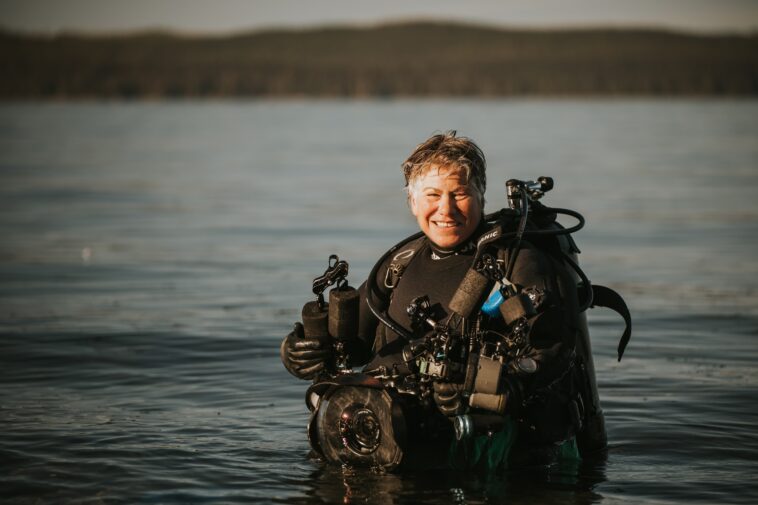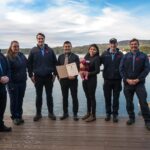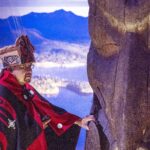Jackie Hildering spends her days trying to solve the mysteries of the ocean.
She is a biology teacher, cold-water diver, underwater photographer, and humpback whale researcher, living in northeast Vancouver Island.
Hildering is also known as the “Marine Detective,” which is the name of her massively popular Facebook page, where she posts incredible images of the things she sees underwater.
We recently hosted Hildering for an episode of Humans of the Coast, a new livestream show from West Coast Now hosted by Dan Mesec and Emmelin Leclerc.
You can rewatch the whole thing here, and read on below for some highlights from the conversation.
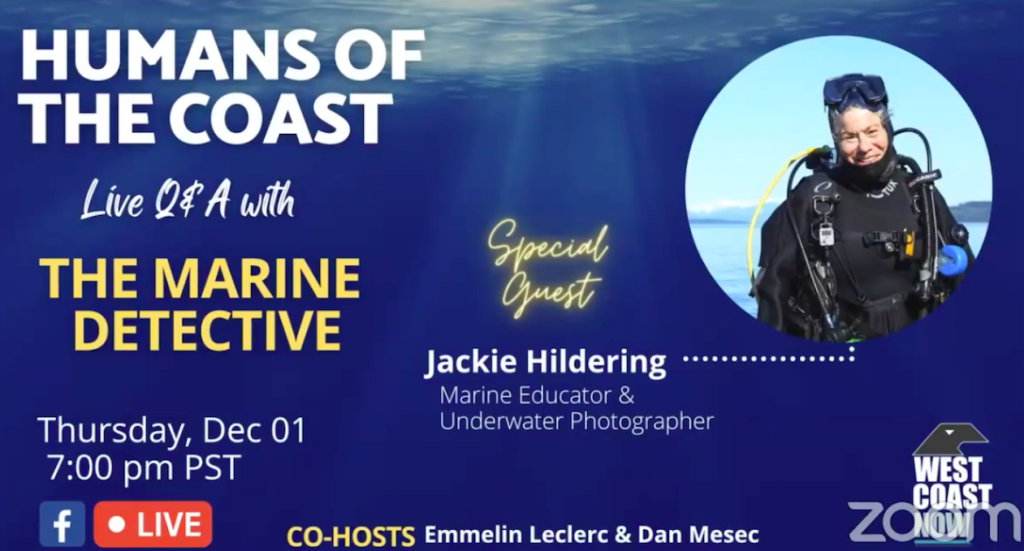
What the heck is a marine detective?
I moved to northern Vancouver Island, and since then, I’ve been learning from one small part of the planet, from individual fish to individual whales.
What I hope that suggests is that for me, it’s about mystery. It’s certainly about empowerment, and it’s massively about humility. If there’s something that we don’t know about it, it is the ocean in its entirety. There is so much to be revealed about its importance and the life within it, certainly in cold, dark water.
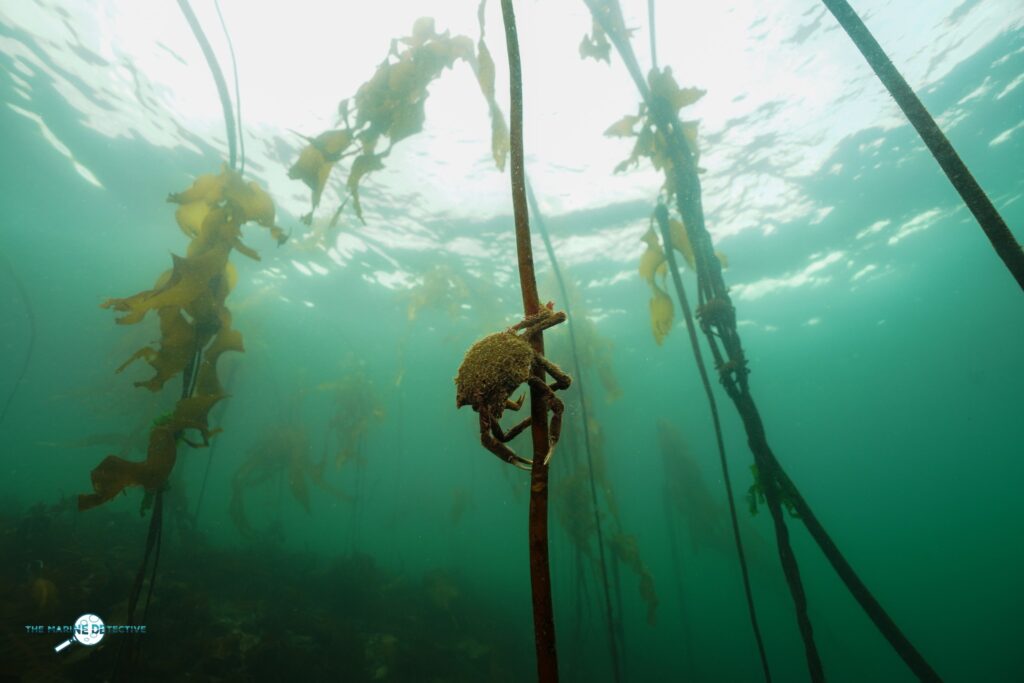
Is there anything that you didn’t expect to find living here on the West Coast?
Like many people that I grew up on the coast, I was locked into something that I describe as ‘ocean blindness.’ I had an understanding of what was at the surface, but not what was below the surface. When I began scuba diving, my mind was blown by the colour.
We hear that you have a passion for nudibranchs. What is the nudibranch?
They are a subgrouping of sea slug. The Nudibranchs are the ones that have naked gills. There’s incredible diversity in them. They are also so wickedly freaking cool. This is one of the mysteries that I started off with because every species has different-looking egg masses.
They are one of the most powerful ambassadors for the colour and diversity of this coast. Because when people see species like this they presume that they are looking at tropical species and they’re not. Nudibranchs end up being the gateway for people to learn more about the environment.
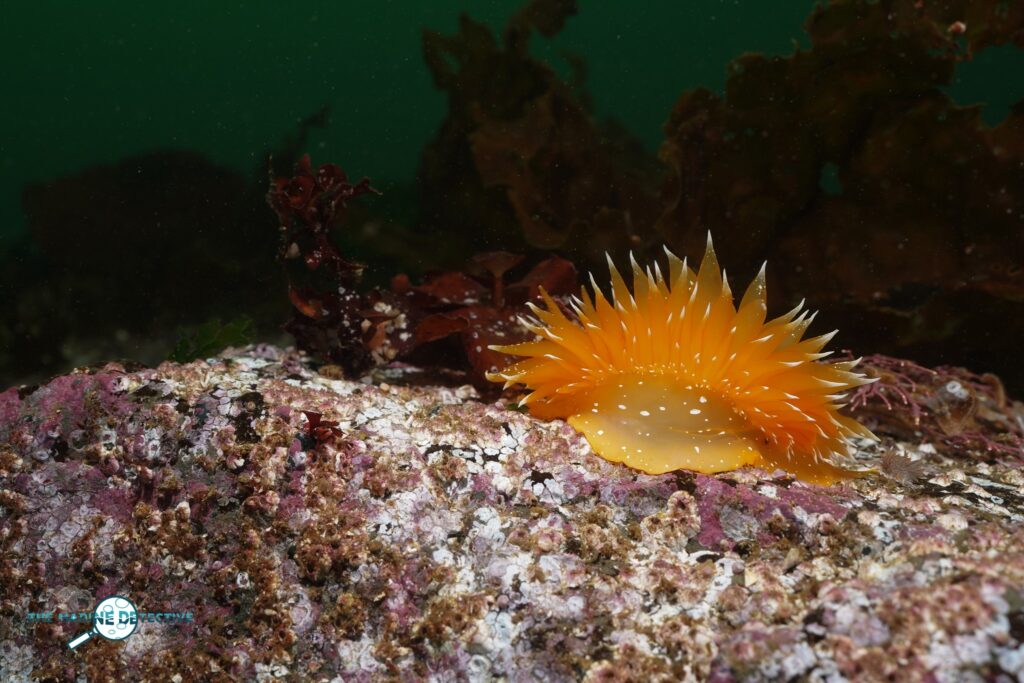
What have you explored and why do you do this work?
I do this work because it’s desperately important to the welfare of future generations. And I’m a teacher through and through. I often start presentations this way: I ask people to close their eyes and imagine what it looks like below the surface. I very quickly see that people are having a moment like I had and realizing ‘oh my God, I’ve been locked at the surface. I haven’t considered how much life there has to be in order to have the giants of the planet feeding here.’
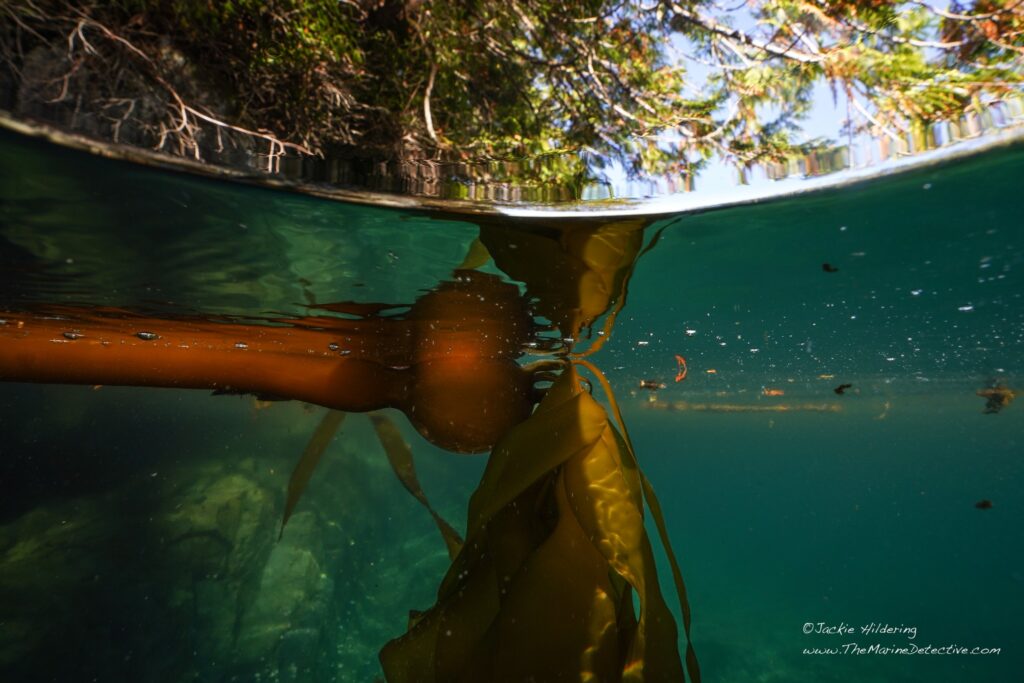
Do you ever feel discouraged about the threats facing the ocean? What do you tell yourself to keep yourself going and motivated if you do?
What keeps me going is I simply don’t understand what it is to check out. Because if I check out, if I disappear into the pit of despair, the very system and the powers that I wish to work against just keep continuing in the same direction. It’s just simply not acceptable to me to succumb, to be overwhelmed.
This past fall, there’s been consultations and meetings going on talking about marine protected areas. What do you think that looks like?
There is incredible hope associated with marine protected areas if they are science-based, and that is both First Nations’ traditional knowledge as well as science. No two MPAs will be the same.
So, for example, if you look at endangered Southern Resident killer whales, they need protection and their habitat needs protection. What if we coupled that with the glass sponge reefs where they are? What about the humpback whales? What about the abalone? That is what marine protected areas would do, where instead of having it be species-based, you have it looking at the value in terms of nutrition, oxygen production, carbon dioxide buffering, but also the interconnection of species because of course these species do not exist in isolation.
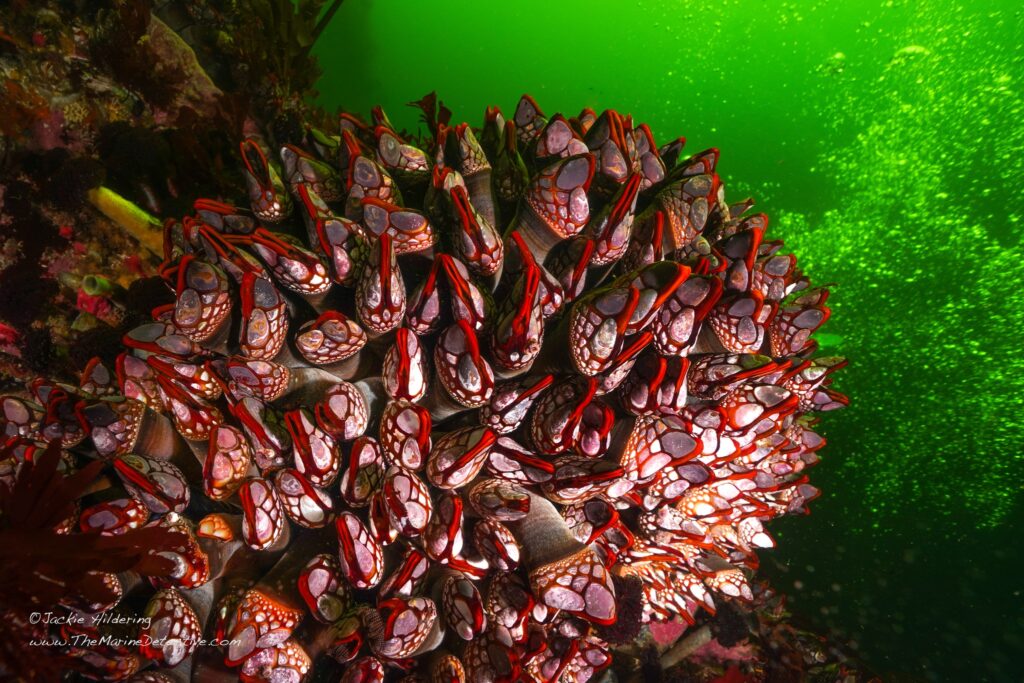
When you look out over the ocean after all of these years of doing the work that you do, having the intimate relationship that you do with the ocean, what do you feel and think?
I feel humility. I feel in service. I feel connected. I know my place. I am so grateful that life led me to this, to doing something for one small part of the planet and having made the life choices where I was able to choose what I considered the most valuable.


